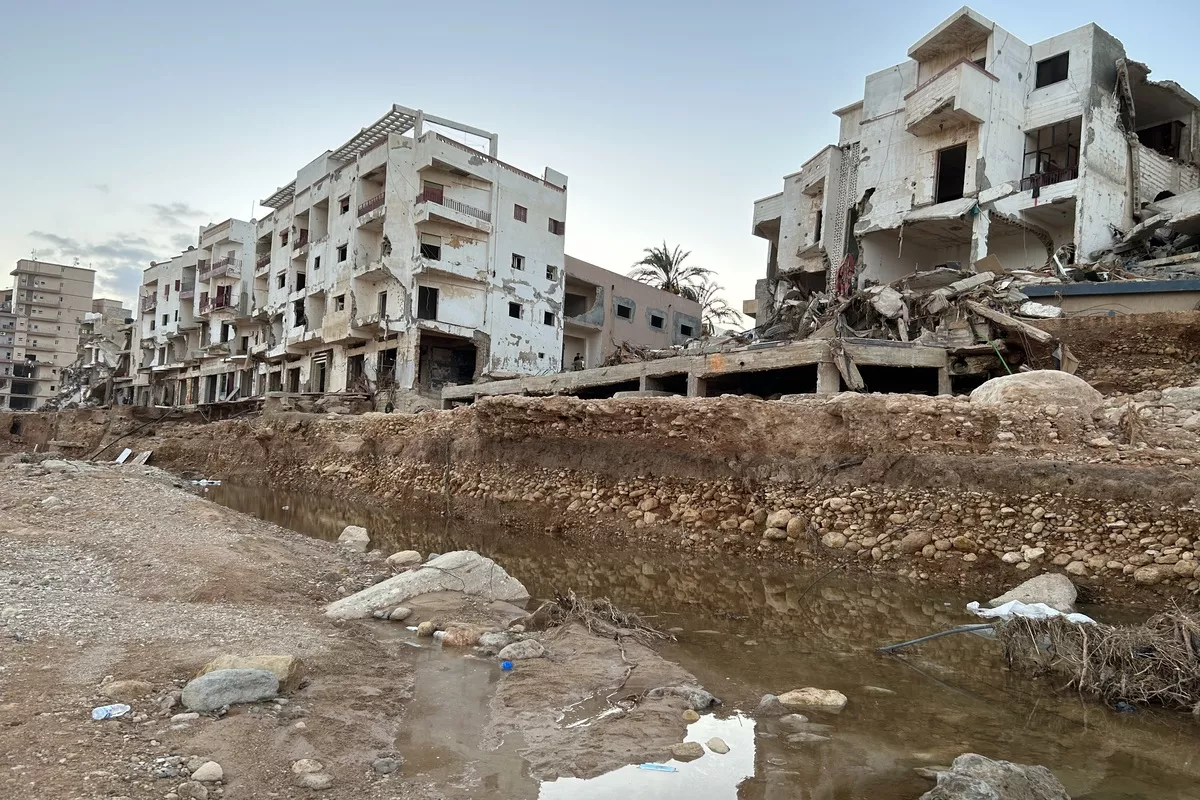
A recent report reveals that the devastating flood in Libya’s eastern port city of Derna last year, triggered by Storm Daniel on September 10, has impacted around 1.5 million people, necessitating $1.8 billion for reconstruction efforts.
The floods caused the collapse of two dams in Derna, unleashing a torrent of water that leveled entire neighborhoods.
“The disaster impacted approximately 1.5 million people — 22 per cent of Libya’s population — living in the coastal and inland cities that were hardest hit,” reads the joint report by the European Union, United Nations and World Bank.
The aftermath resulted in the displacement of nearly 44,800 people, including 16,000 children, leading to a severe decline in their access to care and education. As of December, around 250,000 people still required humanitarian aid.
The report, published by the United Nations Support Mission in Libya, confirms 4,352 deaths and over 8,000 missing persons, making Storm Daniel the deadliest storm in Africa since 1900.
Libya’s governmental authority for the missing announced on Wednesday that it had received 5,000 additional DNA samples for identification from bodies recovered in the rubble, sea, or buried in mass graves around Derna.
Storm Daniel affected 20 municipalities, requiring an estimated $1.8 billion over three years for reconstruction and recovery. The housing sector bore the brunt, with approximately 18,500 homes destroyed or damaged, equivalent to 7 percent of housing, according to the report.
The floods also had a significant impact on the transport and water sectors, as well as the country’s cultural heritage. Beyond reconstruction needs, the report estimates material damage and economic losses, including businesses and farms, at $1.65 billion, equivalent to 3.6 percent of Libya’s GDP in 2022.
Since the NATO-backed uprising that led to the overthrow of dictator Moamer Kadhafi in 2011, Libya has faced armed conflict and political chaos. The country is now divided between an internationally recognized government based in Tripoli, led by interim Prime Minister Abdulhamid Dbeibah, and an administration in the east supported by military strongman Khalifa Haftar.
